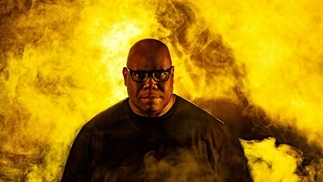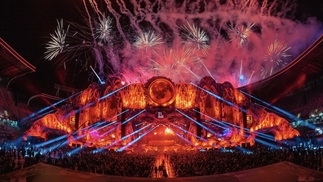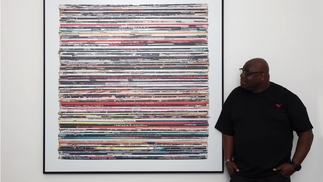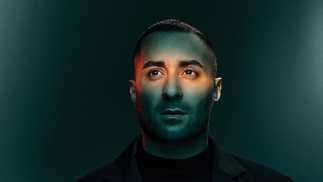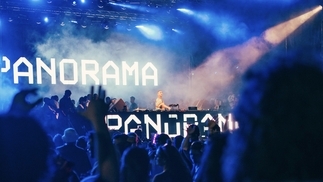Nicole Moudaber: DJ Mag UK cover feature
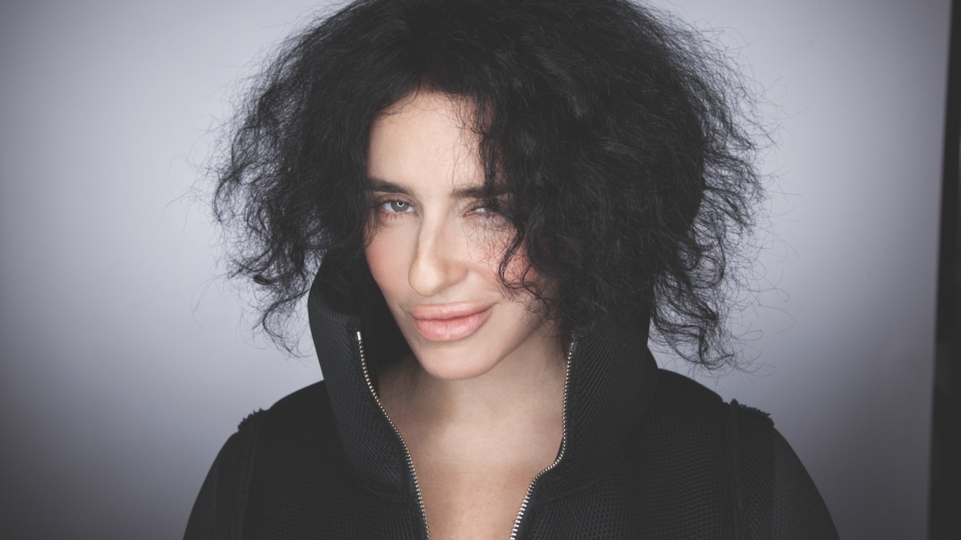
Nicole Moudaber is the techno queen with a rock & roll attitude. She’s the fast-driving petrolhead who’s as at home behind the wheel as she is on the wheels of steel. She’s the hugely talented DJ, producer, promoter and radio host who’s carved out her own niche with tenacity and skill. On the eve of the release of ‘Mood 50: Best Of MOOD’, her compilation to mark the best moments of her label so far, DJ Mag tracks her down in New York to talk growing up in Beirut, fast cars and much, much more...
Nicole Moudaber is hooked on adrenaline. As a DJ, producer, label owner and promoter, she’s created a huge fan-base thanks to a constant schedule of parties, radio shows and releases on her Mood imprint. She’s also a professional racing car driver who has stunned her team-mates with her concentration, fast learning and fearlessness behind the wheel — transferable talents honed in the DJ booth.
“The cars that you drive and the skills that you learn, it’s a whole different world,” Moudaber tells us on the phone from New York, where she’s staying prior to some US gigs. “The level of focus is exactly the same as me playing music. My driving team were very impressed with the level of concentration I had for eight hours. It’s quite remarkable, but I’m used to it.”
The same adaptability, quick thinking and thirst for excitement have made her among the most respected DJs operating today. In Ibiza, Moudaber is infamous for marathon sets of percussive techno and stripped-back house, playing alongside mentor Carl Cox at his Revolution parties at Space, and all over the world at clubs, festivals and her own specially curated events. Most impressive of all is the reach of her weekly radio show, In The Mood. Broadcast to 50 countries, 80 FM stations and an astonishing 20 million listeners, Moudaber's appeal is truly global. "It's crazy." Moudaber says. "It goes to to places where you'd never think the show would be transmitted, like Sri Lanka, Phuket, the Caribbean islands. It's really interesting."
She has a following that would put even the biggest EDM producers to shame, yet her radio shows are as musically uncompromising as her club sets. some weeks she'll hammer out techno; other times, she'll opt for ambient sounds - with her fans trusting her judgement every step of the way. "At the beginning it was quite daunting to have a weekly commitment like that, because it's not always a live recording - I have to put the shows together," Nicole says. "But now I really enjoy digging through my library and coming up with different styles. It makes me excited about the music, and playing stuff I don't normally play in club sets."

MOOD
In addition to being a skilled selector in the booth and behind a radio microphone, Moudaber uses her expert ears to choose tracks for her MOOD label. Dedicated to the many shades of house and techno, in five years it’s been an outlet for 49 releases from dancefloor mainstays such as Carl Cox, Lee Van Dowski, Pan-Pot, Carlo Lio and rising artists including Marino Canal and Andres Campo. The 50th release on the imprint is a compilation mixed by Moudaber, ‘Mood 50: Best Of MOOD’, that picks out some of her favourites from the label’s releases over the years.
A definite sense of her taste comes across on the mix, with dub-wise, subtly psychedelic techno contrasted with kinetic tech-house. Gregor Tresher & Petar Dundov’s ‘Silo’ is a head-spinning procession of hypnotic synth loops and ride cymbals, Victor Calderone’s ‘The Difference’ a spacious, chugging piece of bass, claps and effects, and Joel Mull’s ‘Terraplane’ mixes dramatic strings with overdriven kick-drums. It’s an impressive and avowedly underground set that indicates how much time and passion she dedicates to MOOD.
“It seems like only yesterday that I started the label,” Moudaber says. “So much has happened since. It’s a labour of love, it’s very creative, and it’s about working with friends, plus established artists. It’s a mix of different styles between house and techno.” The primary purpose of MOOD, though, is to provide exposure for new producers. “It’s not a platform for me to make money, it’s a platform to showcase artists. It gives me great pleasure and excitement when I discover new talent. There’s so much talent out there and they need to be heard. I’m very happy to give them that. They play with me all over the world at my parties as well.”
One of the first tracks on MOOD, Nicole Moudaber’s 2014 collaboration with Carl Cox, ‘See You Next Tuesday’, is also on the mix, a house cut with bumping bass that few could resist. It’s set for re-release to coincide with ‘Best of MOOD’, and has been remixed by some impressive names, among them Danny Tenaglia, Solardo, Truncate and Black Asteroid. “I remember the way we came up with this idea,” she says. “Carl gave me a 30-second bass loop, and said, ‘Right Nicole, let’s do a collab’. We started swapping files and came up with an amazing track.”
Yet arguably the best tune of the compilation is one of Moudaber’s own, the opener ‘Her Dub Material’ (Philip Pullman fan perhaps?). Haunted by clouds of spectral electronics and vinyl crackles, it’s loaded with subliminal details, clicks and whirrs, plus that all-important bass groove. Though she’s best known as a DJ, Moudaber is a prolific producer too, and she’s released tracks on labels like Drumcode, Kling Klong, Plastic City and more, and recently remixed Depeche Mode, an experience she says was “amazing”.
Her 2013 debut album ‘Believe’ was an assured set of cavernous slammers, ranging from the Basic Channel-esque ‘Movin’ On’ to the classic New York house of ‘Can I Get Some’. “For me the studio is like a sanctuary, a very sacred moment,” Moudaber says. “I have expressions and feelings pouring out. I use Ableton Live, all the way, and lots of gear and plug-ins. I work on my groove for about two or three hours, around the patterns and basslines. Once I’ve done that, I can elaborate from there.”

SKIN
Working with vocals, and Skin, the singer from British heavy rock band Skunk Anansie, took Moudaber out of her comfort zone. Their collaboration ‘Organic Love’ is also included on the mix, remixed by Scuba. “It was a great learning experience,” she says. “It made me work in a different way. Skin and I vibed so quickly. Working around vocals in techno is not an easy thing: with too many vocals in a track, DJs won’t play it. You have to find the right balance. It was challenging but great.”
Born in Ibadan, Nigeria, Nicole Moudaber grew up in the African nation before moving to Beirut, Lebanon in her teens. There she discovered US house music — “Strictly Rhythm, Masters At Work, Danny Tenaglia, the Tribal rhythmic sound,” she explains — a percussive legacy still present in her DJ sets and production now. She began to dabble in making beats while in Beirut, and there she also decided to start organising dance music events in a place still picking up the pieces after the havoc wrought by the Lebanese Civil War. “The first party I ever threw was in Beirut. That’s what got me into promoting, I did that for many years. It was really to help unify everybody,” she says. “After the war, it was in the late ’90s, I chose a location. Beirut was a completely ruined city back then, and where I chose was next to both a mosque and a cathedral.
“I flew DJs from London and set up a big soundsystem,” she continues. “We had projectors on the cathedral and the mosque, and smoke machines coming out of the ruined homes and stuff. We had 1,000 people for the rst time ever [gathered in the city]. It paved the way for the dance scene in Beirut and now, not one single DJ hasn’t played the city. You had Muslims, Christians, Jews, gay people and straight people there to have fun, have a good time. Defying what had been going on.”
Realising she had a gift for putting on parties, Moudaber moved to London, and became a key promoter at the now-closed but hugely inflluential club, Turnmills. “I had my monthly night [Soundworx] at Turnmills for six consecutive years. Every month I would go there and book so many DJs — around 500. I launched a lot of careers as well,” she tells DJ Mag.

IBIZA
It was as a promoter, producer and a fan that Moudaber saw the dance scene first. She didn’t become a DJ until much later, but one place was key to her ascent: Ibiza. She bought a house on the island in 2001, and played there for the rst time in 2009, at Carl Cox’s The Revolution Continues party at Space — a hell of a proving ground. Over the next few years, she continued to DJ on the island and news of her skill and style spread rapidly. In 2012, Moudaber reached tipping point thanks to a fortuitous remix. “That’s when I won my rst IDMA Award for my remix of Carl Cox’s single ‘Chemistry’,” she says. “That was in the charts for about four consecutive months, it was No.1 on Beatport. After that, my career blew up.”
Moudaber is filled with praise for Carl, a DJ she had enjoyed for years via his DJ sets in person and his classic ‘F.A.C.T’ mix CDs. His patronage, Moudaber says, helped get her DJ career off the ground. “Obviously being with Carl Cox for seven years at Space every summer helped my career,” she says. “He taught me a lot. He’s a friend and a mentor — he changed my life and perspective on the business side, in many ways. Somebody in his position, to be so humble and down to earth and willing to help everybody, we can all learn from him.”
Regarding Ibiza itself, Moudaber loves the island, though not only as a clubbing destination. She enjoys its quieter side even more, as a place of contemplation. “I like to meditate and connect with Ibiza’s nature and spirituality,” she says. “I see it in a different way. It’s very grounding for me. Every time I go there, it’s kind of a regrouping.” A note of sadness is evident in Moudaber’s voice when we talk about the way the island has changed in recent years. She’s repulsed by the growing influence of super-rich tourists on the island: a presence long established, but growing in power lately.
“It’s really sad to see what’s going on,” she says. “It’s turning into this whole champagne, corporate money bullshit. There is still authentic stuff happening, which not a lot of people know about and thank god they don’t, ’cause you don’t want to spoil that either. But I hope there can be some kind of coalition between all these club owners and decision makers there to stop bastardising the island. It’s becoming a bit more like a supermarket. I think we need to stop that. “I talked about it with [Space Ibiza founder] Pepe Rosello and [former Space manager] Juan Arenas on a DJ Mag panel recently,” she continues, refering to the Ibiza Evolution panel that DJ Mag lmed at the Space Museum in Ibiza. “It’s a problem, but not one that can’t be solved.”

EDM
Having seen all sides of the dance equation, Moudaber dislikes seeing the music diluted, whether by moneyed interests who seek to destroy it to pave the way for the luxury market, or by the fakers ruining it from within. She reserves special ire for EDM — to her, everything that’s wrong with the industry. “I always stood against it,” she says. “I always talked against it in the press. I think it’s rubbish, and it’s imploding now anyway and it’s on the way out. Most of these DJs now consider themselves techno, which is totally ridiculous and they just don’t know what they’re talking about. That was a little phase, and as with any trend, it’s going to die at some point.”
In the last few years Moudaber has continued to flex her skills as a promoter, with several on-going MOOD party strands, inviting credible big-hitters such as Josh Wink, Green Velvet, Anja Schneider, Dubfire, Lauren Lane and Damian Lazarus to play. MoodRAW is a warehouse party event, which she’s brought to London and to various venues across the US. “That vibe is different, more raw and underground,” she says. “I like that concept a lot, going back to basics. It was very successful when I did that tour in 2014, we did about five or six shows in the States and they were all sold out.” MoodZONE is a festival stage that has landed at EDC and European festivals, while MoodDAY is her regular shindig during Miami Music Week, beamed live on the radio around the world.
“This was the largest broadcast we had this year, when 50 stations came on board at the same time and gave us seven hours of broadcast. We did the whole thing live. We came on FM and on my Facebook page. It was really amazing. It came to be the party of the conference, which is kinda cool.”

As a DJ, Moudaber continues to refine her art. It’s a constant mission searching for new music to fuel her occasionally mammoth sets, but there’s one thing in particular she looks for when choosing tracks. “Sometimes I play 12-hour sets, sometimes two-hour sets,” she says. “Because I play so many different genres together, what I look for is a transitional track that’s gonna take me from this mood to the other mood. That is an integral moment during the set, for sure. It’s a case of finding one that’s going to fit and turning it a little bit.” Above all, she refuses to water down or commercialise her sound: she doesn’t need to. “With my music I never compromise,” she states. “I guess I have a communication with my crowd, they feel me and I feel them, and we get connected.”
“Nicole has brought a rock & roll attitude to the techno scene,” techno luminary Chris Liebing tells DJ Mag, and it’s true — the various friends and associates we spoke to for this cover feature (Coxy, Tenaglia, etc.) all testify to her fiercely independent nature, determination and unstoppable force.
Looking ahead to 2018, Nicole is planning to spend more time in the studio on production work, but there’s also the matter of planning more upcoming MoodRAW parties — and, of course, burning up the race-track in the meantime. “When I play for 12 hours, I don’t drink, I don’t do drugs. I’m completely focused, on it,” she says. “Racing cars is pretty much the same principle. I come prepared!”
Did you know we also have a North American print magazine? Check out our previous DJ Mag North America cover features on Anja Schneider and Monika Kruse.


